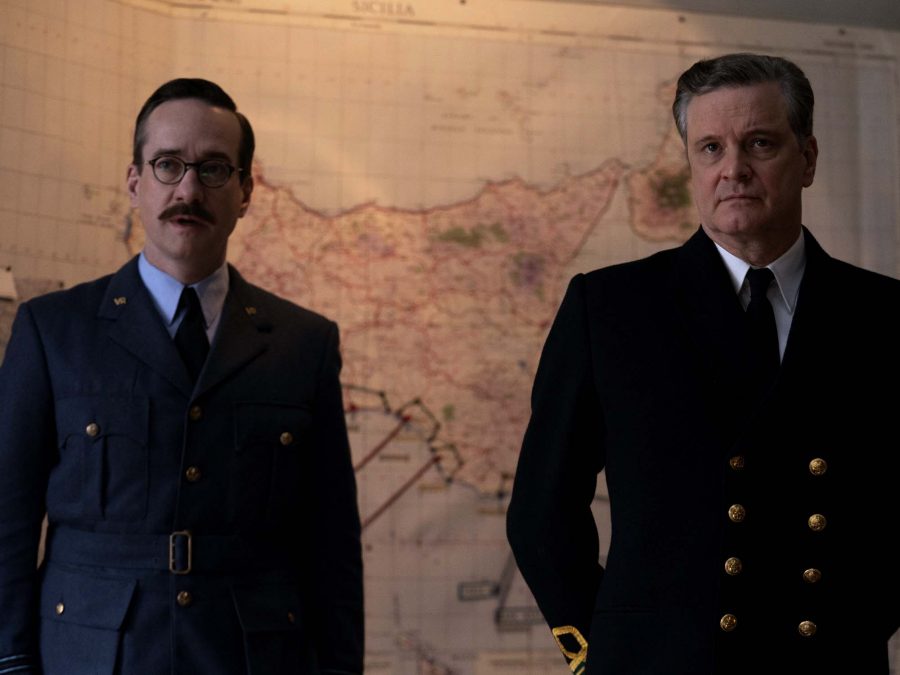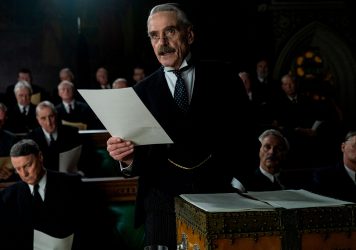Colin Firth and Matthew Macfadyen team up to foil a Nazi plot in this likeable World War Two caper.
During my formative years, before the noxious lure of cinema had enraptured and subsequently tainted my pure soul, I was a proud member of the Scout Association. Each Friday evening, I’d don my badge-strewn faux-camo uniform, dash to the rickety hut at the end of my street, and engage in what can only be described as wholesome outdoors-y monkeyshines, and play British Bulldog.
One of our Scout leaders was ex-military, wore aviator shades at all times and bore a strange resemblance to Walter from The Big Lebowski (and, by extension, the gun-loving writer/director John Milius). Often, in a period of calm, generally when we were consuming our tuck, he would invite us to gather round while he recounted – like a master storyteller – the plot of Richard Attenborough’s 1977 feature, A Bridge too Far, about a failed Allied manoeuvre during World War Two involving the strategic taking of various bridges in the Netherlands. When he arrived at the tragic climax, he would often go silent and tear up. We would then go and play some more British Bulldog.
I can’t help but feel that the similarly-inclined Scout leaders of today would glean much satisfaction from recounting the story of Operation Mincemeat, a long-odds government escapade undertaken by a Naval Intelligence officer and an RAF Flight Lieutenant who had been seconded to MI5 in order to trick Hitler’s Germany into thinking an Allied landing party would be arriving in Greece rather than Sicily.
It has now been made into an entirely serviceable period thriller starring Colin Firth as said puffy-chested Naval officer and Matthew Macfadyen as said bookish RAF pilot who hatch a mad scheme involving a dead Welshman, a cachet of fake papers, and lots of potential German naivete.

It’s all put together with a measure of skill from old hand John Madden, and the ticking-clock essence of the ruse bundles the story in with plenty of tension (even if you know the outcome). There’s a love interest thrown into the mix in the form of Kelly Macdonald as a doe-eyed secretary who has been widowed by the war, and for whom both men take something of a shine.
Jason Issacs is good value as Admiral John Godfrey, the preening bureaucratic overseer whose hand is forced into commissioning this operation and who secretly hopes it falls. A pantomiming Simon Russell Beale is a sub-par Churchill among the phalanx of sub-par screen Churchills of yore.
It’s a model of old school screen storytelling, where the robust individual elements coalesce into the exact sum of their parts and not a single ounce out either way. There is an intriguing metatext when it comes to the cinematic notion of building a person with a history and emotions out of a rotting corpse and hoping that working class people buy it, but the film is far more interested in making sure all plot strands nicely weave in a satisfying way – and they do.
Even the alienating title makes a lot more sense when you get down to the nitty-gritty of what these people were actually doing. Then, when it’s all done, you’ll be out the door in a flash and likely hankering for a swift round of British Bulldog.
Little White Lies is committed to championing great movies and the talented people who make them.
Published 12 Apr 2022
Wartime derring do with an exceptionally awful title.
A bit of a fun old caper movie with the usual jingoistic trimmings.
Nothing much to ponder over, but a second sit would definitely not be unpleasant.

Christopher Nolan’s breathtaking historical opus attempts to give the viewer a taste of what war actually feels like.

Netflix rings in the new year with an austere World War Two espionage thriller from director Christian Schwochow.

By Anton Bitel
Shinya Tsukamoto’s Fires on the Plain is a harrowing reminder of the futility and madness of human conflict.